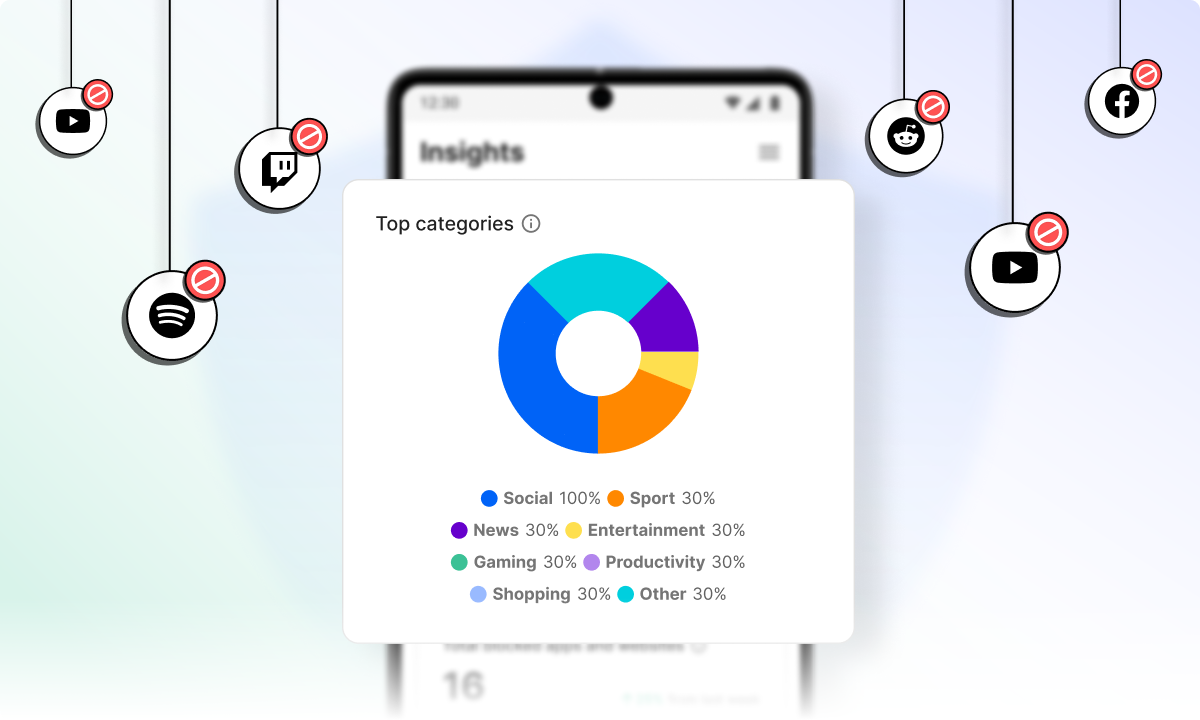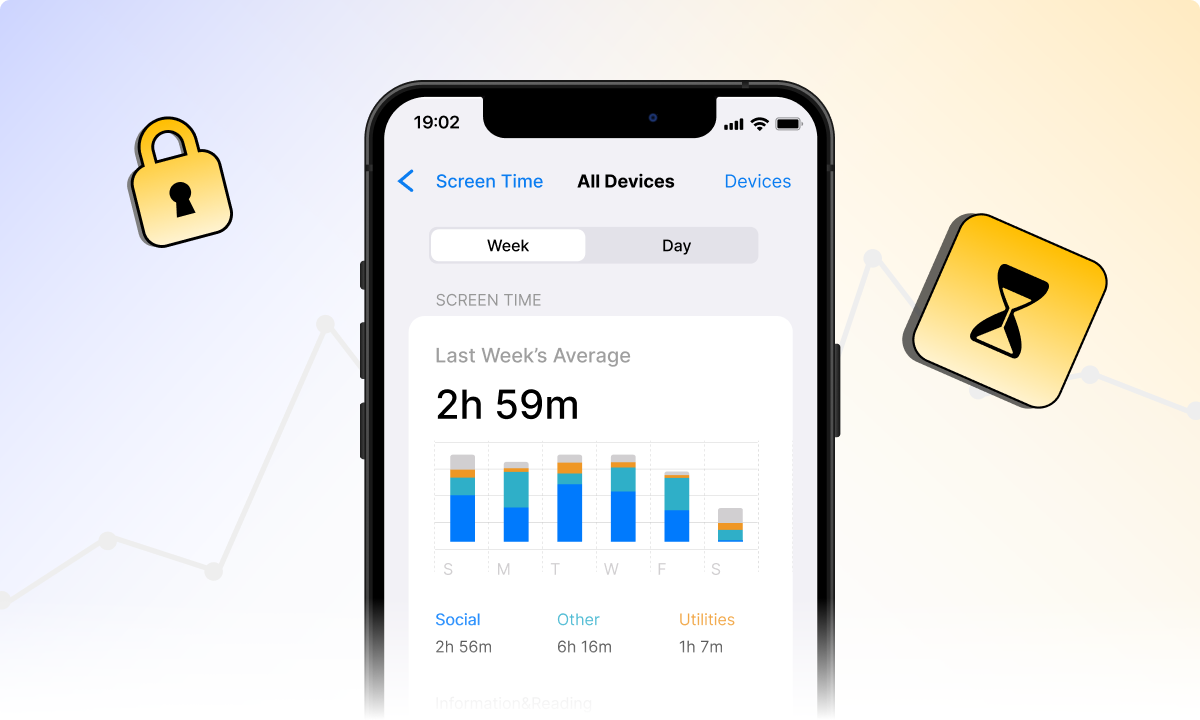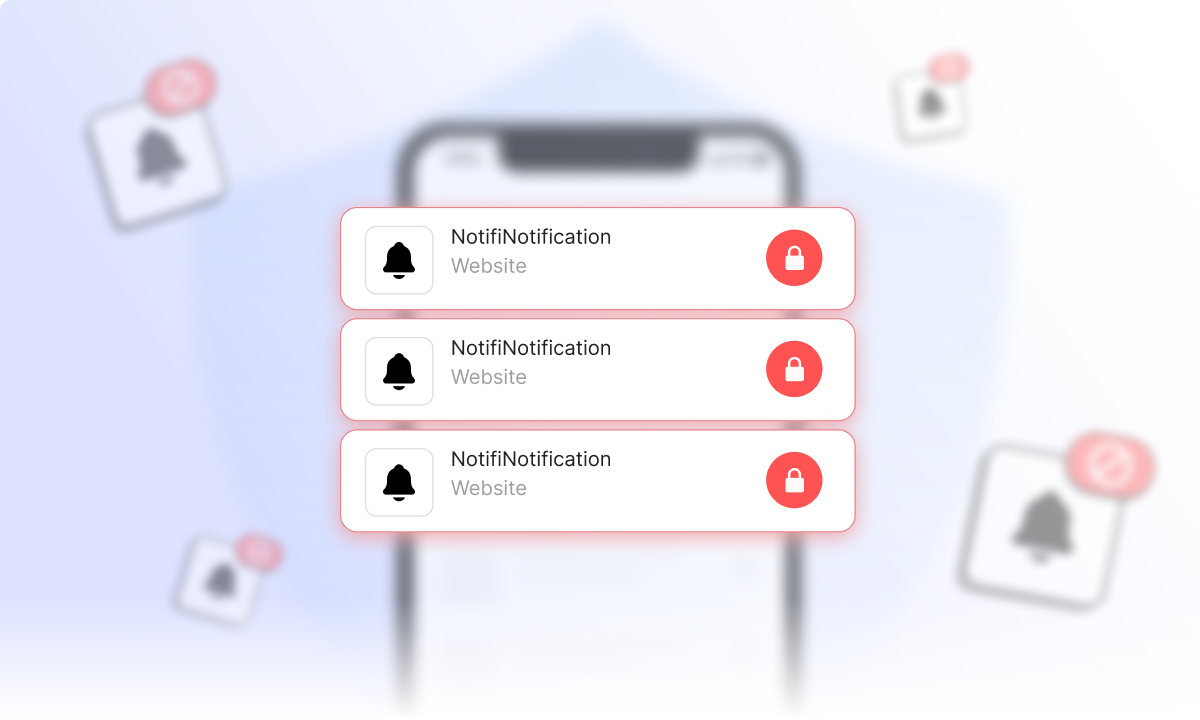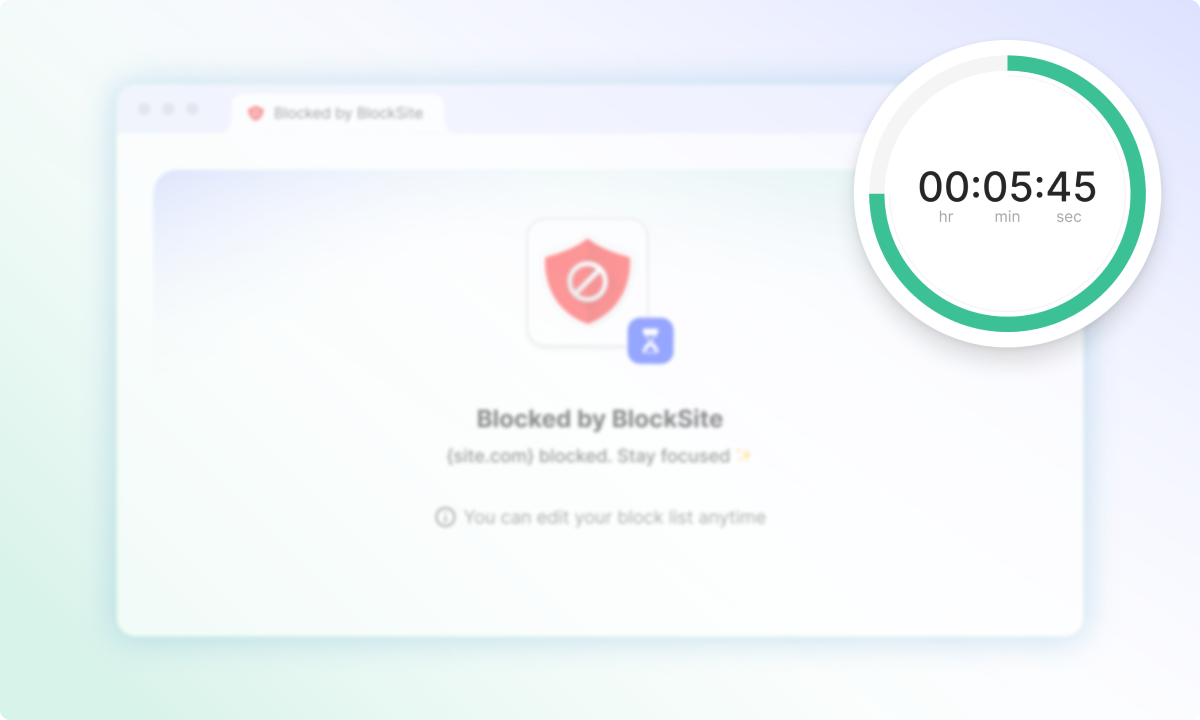Staying focused is tough. Between phones, emails, and that random urge to reorganize your desktop folders, distractions are everywhere. Regardless if you’re working, studying, or trying to think straight before your second coffee, the ability to focus and concentrate is more than just a matter of “trying harder.”
It’s about the right mix of habits, mental routines, and yes, even a few tools. This quick guide walks you through what focus and concentration really mean, what’s getting in their way, and what you can actually do to get better at both.
Especially helpful if you’re figuring out how to improve concentration and focus while studying or managing the ups and downs of ADHD.
Concentration vs. focus
These two terms get used like they’re the same thing. They’re not.
Definition and function
Focus is about what you’re looking at. Think of it as choosing what gets your attention. Concentration is about how long you can keep it there. You might zero in on a task fast but sticking with it, especially when it gets boring or tough, is where concentration kicks in.
Scope vs. depth
Focus = what you pick. Concentration = how deep you go. If you’re studying, focus helps you open the book. Concentration gets you through the next 30 pages without checking your phone every five minutes.
Distraction management
Focus blocks out the noise, at first. Concentration keeps the noise from sneaking back in. You’ll need both, especially if you’re looking at how to improve concentration and focus in studies or want real tips on how to improve focus and concentration at work without losing half your day.
Mental endurance
Focus fades fast. Concentration needs stamina. If you’re trying to figure out how to improve focus and concentration in the morning, don’t go straight into a five-hour spreadsheet session, then move into the heavier stuff.
8 reasons why you might be struggling to focus or concentrate
Struggling to concentrate? This is a common problem. Here are the usual suspects getting in your way and yes, identifying them is the first step to fixing the problem.
1. You’re not sleeping enough
Lack of sleep messes with memory, attention, and basic decision-making. When you’re running on fumes, even replying to emails feels like a workout.
2. Your brain’s on notification overload
Buzz. Ping. Scroll. Repeat. Constant distractions from apps, background noise, or even coworkers train your brain to crave stimulation. Focusing on one thing? Not going to happen.
3. You’re multitasking (stop it)
Doing five things at once feels productive, until nothing gets done properly. Your brain doesn’t multitask. What’s actually happening is that it switches back and forth, which leaks energy and kills focus every time it flips.
4. There might be a health issue
Conditions like ADHD, anxiety, depression, or chronic pain don’t just make focus hard, they reroute your brain’s bandwidth. Trying to figure out how to improve focus and concentration with ADHD? You’ll need structure, routines, and tools that help you reset.
5. You’re drowning in input
Endless tabs, unread messages, and non-stop content? That’s cognitive overload. Your brain can’t filter it all, so everything feels urgent and nothing gets done.
6. Your diet’s letting you down
Your brain needs fuel, not junk. Low omega-3s, B vitamin gaps, or sugar spikes mess with mental clarity. Processed food makes for processed thoughts.
7. You’re not moving enough
Exercise sharpens focus. Sitting all day, especially without movement breaks, slows your mind down. That afternoon brain fog? That’s your body begging for movement.
8. You never hit pause
No breaks, no reset. If you go full throttle from morning to night, your attention span burns out. Don’t think of breaks as rewards. They’re how you stay sharp.
How to improve your concentration and focus
Struggling with scattered thoughts, mindless scrolling, or a to-do list that never ends? If you’re trying to figure out how to improve focus and concentration at work, or just want to stay locked in during your morning routine, we’ve rounded up the top strategies that actually work.
These are flexible and they don’t require a silent monastery or ten-day retreat.
1. Cut out digital distractions with BlockSite
The biggest concentration killer is your phone. One “quick” glance turns into 45 minutes of memes and product reviews you didn’t need.
BlockSite helps you stop that in its tracks. Here’s how:
- Block Specific Sites and Apps: Goodbye, Reddit rabbit holes.
- Scheduled Blocking: Set your own ‘focus hours’—perfect for that post-lunch slump or study sprints.
- Focus Mode: Work in short, structured bursts (with breaks baked in).
- Cross-Device Sync: Blocks apply across desktop and mobile. No escape route here.
- Custom Block Pages: Remind the future you why you blocked Instagram or that distracting site..

If you’re figuring out how to improve concentration and focus while studying or working remotely, this tool is a no-brainer. Set up BlockSite today and schedule a few no-scroll windows in your workday.
2. Build a distraction-free zone
Your environment matters more than you think. If your desk is a mess, your mind probably is too.
Clear the clutter. Use noise-canceling headphones. Get a decent lamp. Even a small change like removing your phone from sight can change your brain into ‘work mode.’
3. Use the Pomodoro method (yes, it still works)
Twenty-five minutes on. Five minutes off. This old-school technique still delivers. It trains your brain to stay engaged without burning out.
Four cycles? Take a longer break. Perfect for people looking at how to improve concentration and focus in studies or during deadline-heavy weeks.
Here’s a tip to get started: Try one Pomodoro round today and see how your focus changes.
4. Move your body (even a little)
Exercise isn’t just for heart health. It’s the fuel for your brain. A short walk before work or study can give you the mental reset you didn’t know you needed. Bonus: no gym membership required.
Don’t overthink it. Twenty minutes is enough to improve alertness and concentration.
5. Prioritize your sleep like it’s a work deadline
Scrolling TikTok at midnight? You’re not doing yourself any favors. Aim for 7–8 hours of solid rest. That means:
- Go to bed at the same time every night.
- Cut the screens an hour before.
- Keep your bedroom dark and quiet.
Poor sleep tanks your memory and makes it harder to concentrate, especially first thing in the morning.
6. Try mindfulness (even if you’re skeptical)
Mindfulness isn’t just sitting in silence and trying not to think. It can be:
- A 2-minute breathing exercise.
- A walk where you leave your phone behind.
- Even a few minutes of just noticing your surroundings.
These simple techniques help train your brain to stay present and reduce impulse switching. Try downloading a basic meditation app or try one mindful activity per day this week.
7. Fuel your brain with the right food
That 3 PM crash? It probably started with your lunch. Try loading up on:
- Leafy greens
- Eggs
- Salmon
- Nuts
- Berries
Skip the sugary snacks unless you want to fall asleep mid-email. Your brain needs slow-burning fuel, not a blood sugar rollercoaster.
8. Take more breaks than you think you should
You’re not a machine so don’t wait until your brain is mush. Schedule short breaks throughout the day. Walk around. Grab water. Stare out the window.
These little resets improve cognitive performance. You’ll get more done, not less, by stepping away.
Set a 5-minute break every hour. You’ll come back sharper.
Build better focus, one small tweak at a time
Getting better at focus doesn’t happen overnight but you don’t need a total life overhaul either. Small, consistent changes work better than dramatic ones that fizzle out in a week.
Start with the easy wins: tidy your workspace, take regular breaks, and get more sleep. Simple stuff. But it works. From there, layer in things like better nutrition, light exercise, and single-tasking. If you’re wondering how to improve concentration and focus in studies or need a plan to stay on track at work, timing matters too. Pay attention to when your brain actually wants to work, especially in the morning, and build your toughest tasks into that window.
If you need backup, BlockSite can do a lot of the heavy lifting. Set it to block time-wasting websites and apps. Use Focus Mode to lock in distraction-free sessions, whether you’re studying, working, or trying to manage ADHD symptoms. The trick is consistency. Tools help but it’s the habits you build every day that do the real work over time.
FAQs
How can I stay focused during long meetings?
Jot down notes. Ask a question. Try mentally summarizing what’s being said. These tactics keep your brain from drifting. And if you can, give yourself a short break before or after.
How to improve concentration and focus in the morning?
Move your body. Skip the phone scroll. Eat something that doesn’t come in a shiny wrapper. Then hit your most important task while your brain’s still fresh and block out everything else.
What if I have ADHD? How can I stay focused?
Break tasks into small, time-limited chunks. Move often. Use visual reminders or a productivity app with timers. External structure matters more than motivation here.
Can music help with focus?
Yes, if it’s the right kind. Stick to instrumental or ambient music. Lyrics and catchy beats usually steal attention, not support it. Keep the soundtrack low-key.
Why does multitasking make things harder?
Because your brain isn’t actually doing two things at once. It’s flipping between tasks. And every flip costs you focus. Stick to one thing, finish it, then move on.






